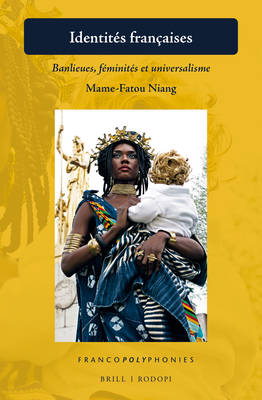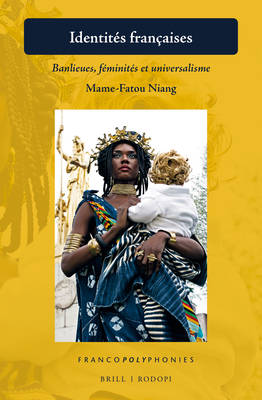
- Afhalen na 1 uur in een winkel met voorraad
- Gratis thuislevering in België vanaf € 30
- Ruim aanbod met 7 miljoen producten
- Afhalen na 1 uur in een winkel met voorraad
- Gratis thuislevering in België vanaf € 30
- Ruim aanbod met 7 miljoen producten
Zoeken
€ 229,45
+ 458 punten
Uitvoering
Omschrijving
Dans Identités françaises, Mame-Fatou Niang interroge la périphérisation et l'identité nationale, à travers l'étude de discours sur les banlieues françaises. L'attention sur des femmes et sur le quotidien illumine des processus qui créent citoyenneté et marginalité dans la France républicaine.
In Identités françaises, Mame-Fatou Niang illuminate approaches to marginalization and national identity, through the study of discourses on the French banlieues. The focus on the quotidian and on women interrogate the processes that create citizenship and marginality in republican France.
In Identités françaises, Mame-Fatou Niang illuminate approaches to marginalization and national identity, through the study of discourses on the French banlieues. The focus on the quotidian and on women interrogate the processes that create citizenship and marginality in republican France.
Specificaties
Betrokkenen
- Auteur(s):
- Uitgeverij:
Inhoud
- Aantal bladzijden:
- 340
- Taal:
- Frans
- Reeks:
- Reeksnummer:
- nr. 28
Eigenschappen
- Productcode (EAN):
- 9789004407220
- Verschijningsdatum:
- 5/12/2019
- Uitvoering:
- Hardcover
- Formaat:
- Genaaid
- Afmetingen:
- 155 mm x 234 mm
- Gewicht:
- 648 g

Alleen bij Standaard Boekhandel
+ 458 punten op je klantenkaart van Standaard Boekhandel
Beoordelingen
We publiceren alleen reviews die voldoen aan de voorwaarden voor reviews. Bekijk onze voorwaarden voor reviews.








